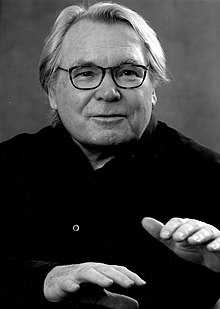Our website is made possible by displaying online advertisements to our visitors.
Please consider supporting us by disabling your ad blocker.
Oskar Negt
Oskar Negt | |
|---|---|
 Negt in 2007 | |
| Born | 1 August 1934 |
| Died | 2 February 2024 (aged 89) Hanover, Lower Saxony, Germany |
| Education | |
| Occupations |
|
| Organizations |
|
| Awards | August Bebel Prize |
Oskar Reinhard Negt (German: [ˈneːkt]; 1 August 1934 – 2 February 2024) was a German philosopher and critical social theorist. He was a professor of sociology in Hanover from 1972 to 2002, regarded as one of Germany's most prominent social scientists.[1]
A member of the Socialist German Students' Union, Negt studied philosophy and sociology in Frankfurt with Theodor Adorno, and was an assistant of Jürgen Habermas. He was one of the mentors of the Außerparlamentarische Opposition, and when the protest movement fragmented, tried as leader of the Sozialistisches Büro in Offenbach to establish an "over-factional consciousness".[2] Negt's focus was on the education of workers as political action, believing that democracy was a form of government that had to be learned. He is known for his collaboration with the filmmaker and visual artist Alexander Kluge, including books that were translated into English as Public Sphere and Experience and History and Obstinacy.
Previous Page Next Page


